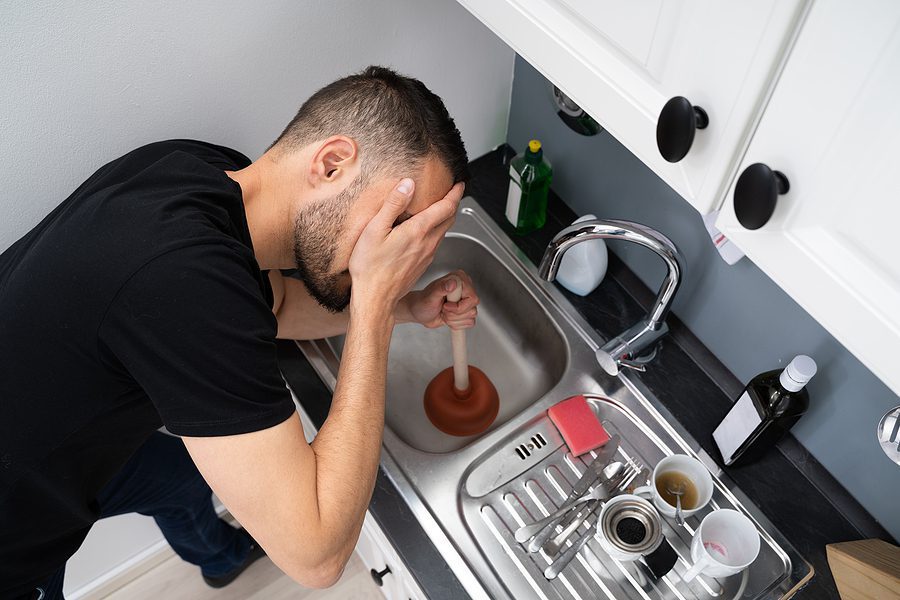
A clogged drain can quickly turn a good day into a stressful one. Whether it’s water pooling around your feet during a shower or sudsy water backing up into your kitchen sink, the inconvenience is undeniable. Left unaddressed, these issues can lead to more serious damage and expensive repairs. The good news is that with a few proactive habits, many drain clogs are preventable. Here’s how you can take control of your plumbing and keep your drains running smoothly.
React Quickly to Sluggish Drains
One of the earliest signs of a developing clog is a drain that seems sluggish. If your bathroom sink is draining slower than usual or your tub makes a gurgling noise when you pull the plug, don’t ignore it. These are clear indicators that a minor clog is forming, and it’s critical to act promptly.
Start by pouring very hot water down the drain to dissolve any buildup. If the drain remains slow, try using a plunger to dislodge debris. However, if these methods don’t work, it’s time to call a professional plumber. Ignoring these early signs can lead to a complete blockage, which is not only more difficult to fix but can also result in water damage and costly repairs.
For major sewer line clogs, this becomes an emergency situation. Sewer backups can introduce raw sewage into your home, posing severe health hazards and causing extensive damage. Professionals have specialized tools like cameras to inspect pipes and hydro-jetters to thoroughly clear blockages. Attempting to DIY a major sewage issue is risky and can make matters worse, so it’s best left to the experts.
Prevent Laundry Room Clogs by Catching Lint
If your washing machine drains slowly or you notice wet spots on the laundry room floor, lint buildup could be the culprit. While lint may seem harmless, it can accumulate over time, restricting water flow in the pipes and eventually causing a full blockage.
To prevent this, use a drain screen or filter on your washing machine’s drain line. This simple device catches lint before it can enter the pipes. Cleaning the filter regularly ensures it remains effective. Another DIY solution is to loop an old nylon stocking around the drain line; the stocking will collect the lint, which you can then discard. Regular maintenance of these filters can keep your laundry drains lint-free, avoiding inconvenient clogs.
Avoid Pouring Fat, Oil, or Grease Down Drains
One of the most common causes of kitchen drain clogs is the disposal of fats, oils, and grease (FOG) down the sink. When hot, grease appears to be liquid, but as it cools, it solidifies and sticks to the walls of the pipes. Over time, this buildup catches food particles and other debris, leading to stubborn clogs.
To avoid this, never pour grease down the drain. Instead, have a designated container for collecting cooking grease. Let it cool and harden, then dispose of it in the trash. Additionally, use paper towels to wipe excess grease from plates and pans before washing them. By adopting this habit, you prevent grease from accumulating in your pipes, keeping them clear and clog-free.
Be Mindful of What You Flush
It’s tempting to dispose of various items by flushing them down the toilet or washing them down the sink, but this can lead to serious clogs. Items like diapers, kitty litter, cotton balls, and even “flushable” wipes don’t break down easily in water. They can get lodged in the pipes, causing blockages that are difficult to remove.
Greasy, starchy foods like rice and pasta should also be kept out of the drains, as they can clump together and create obstructions. Always remember, drains and toilets are not trash cans. Only human waste and toilet paper should be flushed. Properly dispose of other items in the trash to maintain clear pipes.
Call the Pros for Major Sewer Line Clogs
When it comes to major sewer line clogs, it’s essential to bring in the professionals. Attempting to deal with raw sewage on your own can be dangerous and ineffective. Plumbers are equipped with heavy-duty hydro-jetters that can blast through years of accumulated gunk, restoring your pipes to optimal function.
Delaying a call for help can turn a minor issue into a costly disaster. By addressing clogs early and taking preventive measures, you can protect your home from water damage and the inconvenience of backed-up drains. Don’t wait for a plumbing emergency to take action—stay vigilant and keep your drains clear.

